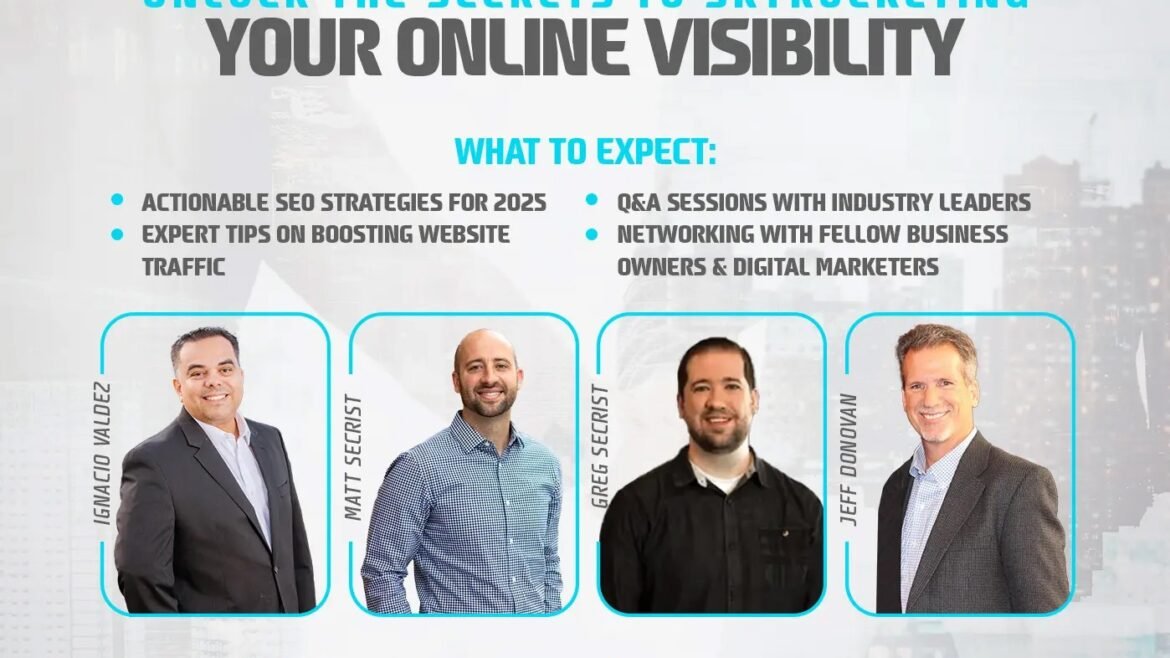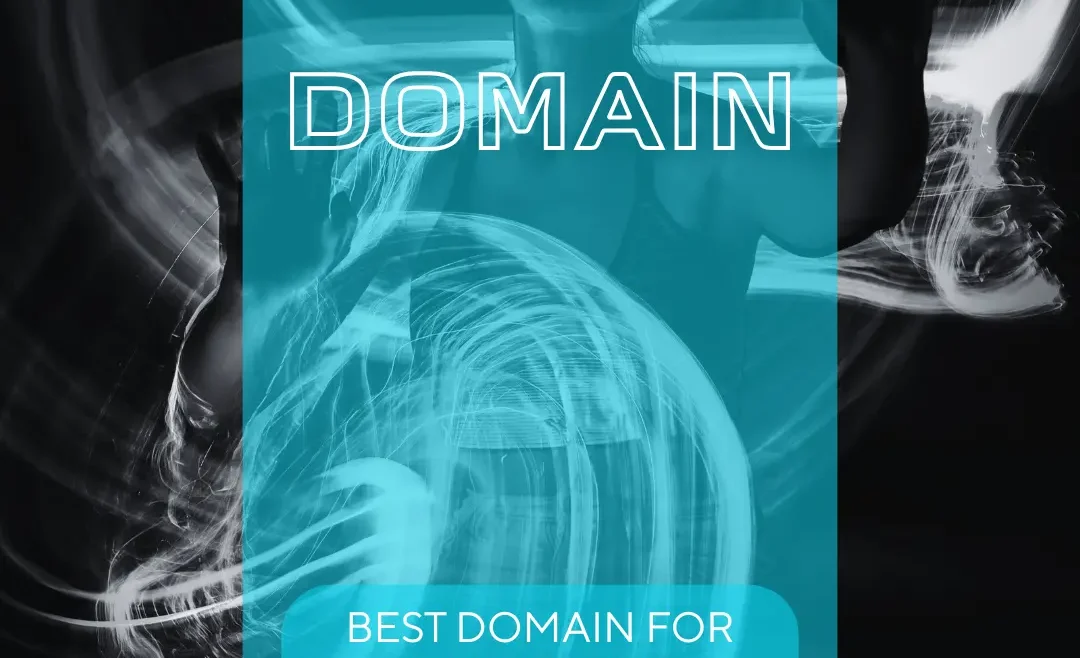Unveiling the Future of SEO: Insights from the Salt Lake City SEO Summit
Intro:
The Salt Lake City SEO Summit gathered leading experts in digital marketing to share the latest strategies shaping the future of search. Hosted by Ignacio Valdez, CEO of SolidifyWeb, the event featured powerful presentations on YouTube SEO, AI-driven search, user intent, and local Google Maps rankings. Whether you’re a business owner, marketer, or SEO professional, the insights from this summit are a roadmap to staying ahead in today’s competitive online landscape.
 Ignacio Valdez: Understanding User Behavior Behind Google Searches
Ignacio Valdez: Understanding User Behavior Behind Google Searches
Ignacio Valdez opened the summit with a deep exploration of user intent, the foundation of any successful SEO strategy. As he explained, Google’s algorithm is constantly evolving to better understand why users are searching, not just what they’re typing.
Types of Search Intent
-
Informational Intent
-
These users are looking for answers or general knowledge.
-
Example: “What is on-page SEO?”
-
Strategy: Create high-quality blog posts, FAQs, and educational content to capture these searches.
-
-
Navigational Intent
-
Users want to reach a specific website or brand.
-
Example: “SolidifyWeb login”
-
Strategy: Ensure your brand name dominates the first page of Google through optimized branding and schema markup.
-
-
Transactional Intent
-
Users are ready to take action, like making a purchase or hiring a service.
-
Example: “Hire web development services near me”
-
Strategy: Focus on conversion-optimized landing pages and clear calls-to-action.
-
-
Commercial Investigation
-
Users are researching before making a decision.
-
Example: “Best SEO agencies in Utah”
-
Strategy: Publish comparison guides, case studies, and testimonials to establish trust.
-
Ignacio emphasized that Google prioritizes pages that best match user intent. Simply stuffing keywords is no longer effective; understanding the psychology behind the search is key to ranking and converting.
Pro Tip from Ignacio: Always ask, “What is my audience truly trying to accomplish?” If your content answers that question better than anyone else, you win.
Greg Secrist: YouTube Is the Future Google
Next, Greg Secrist, CEO of BKA Content, revealed why YouTube is no longer just a video platform—it’s becoming the second-largest search engine in the world and a major driver of future SEO strategies.
Why YouTube Matters for SEO
-
Video content is more engaging than text, increasing retention and brand awareness.
-
Google owns YouTube, so video results are prioritized in search engine results pages (SERPs).
-
As voice search grows, Google is pulling video snippets as answers to conversational queries.
Greg explained that people now “Google” things directly on YouTube, making it essential for brands to integrate video SEO into their strategy.
How to Leverage YouTube for SEO
-
Keyword-optimize your titles and descriptions using the same research process you would for blog posts.
-
Create engaging thumbnails and playlists to improve click-through rates.
-
Add transcripts and captions to improve accessibility and help Google better understand your content.
-
Include clear calls-to-action and links in your video descriptions to drive website traffic.
Greg concluded by saying, “If you’re not creating YouTube content, you’re leaving massive SEO opportunities on the table. YouTube is the future Google.”
Matt Secrist: How to Dominate AI Search Results
AI-driven search is transforming how users discover content, and Matt Secrist dove into this cutting-edge topic with actionable strategies.
What Is AI Search?
Matt explained that platforms like Google SGE (Search Generative Experience) and AI assistants like ChatGPT are changing search behavior. Instead of listing multiple results, AI now summarizes answers directly.
This means that to dominate AI-driven search, you need to create content that AI models trust and pull from.
Strategies to Win AI Search Results
-
Focus on authoritative content that’s well-structured, factual, and semantically rich.
-
Use structured data and schema markup to help AI understand your content.
-
Build topic clusters with pillar pages and interlinked subtopics to show expertise.
-
Optimize for conversational queries, writing in a natural, human-friendly style.
Matt also highlighted the importance of E-E-A-T (Experience, Expertise, Authoritativeness, Trustworthiness) as Google and AI models prioritize content from credible sources.
Key Takeaway from Matt: “If you want AI to recommend your content, write for people first but structure for machines.”
Jeff Donovan: Winning on Google Local Maps
Local SEO is more competitive than ever, and Jeff Donovan, owner of Results Marketing, shared the top Google Maps ranking factors that can skyrocket local businesses.
Why Google Maps SEO Is Crucial
When users search for “services near me,” Google Local Maps results appear above traditional organic rankings. Businesses that dominate the map pack see higher foot traffic, calls, and conversions.
Top Google Maps Ranking Factors
From Jeff’s presentation, here are the key ways to improve your Google Business Profile (GBP) and local rankings:
-
Complete and optimize your GBP listing with business categories, hours, and services.
-
Keep NAP (Name, Address, Phone) citations consistent across directories.
-
Gather quality customer reviews frequently.
-
Upload high-quality local photos and videos to engage users.
-
Build backlinks from trusted local sources.
-
Create location-specific landing pages for better service area targeting.
-
Post regular updates, offers, and events directly on your GBP.
-
Encourage clicks, calls, and direction requests to improve engagement signals.
-
Target nearby keywords to maximize proximity-based rankings.
-
Maintain a clean website URL structure for better indexing and relevance.
Jeff emphasized that local SEO is an ongoing effort—businesses that actively update and engage with their Google profiles outperform those who “set it and forget it.”
Key Themes from the Summit
While each speaker focused on different aspects of SEO, several common themes emerged:
-
User intent rules everything. Whether you’re creating a blog, a video, or an AI-optimized page, you must understand why users search.
-
Video is no longer optional. YouTube is a search engine in its own right and will only become more dominant.
-
AI will change the game. Content must be created with both humans and AI models in mind.
-
Local SEO is still a goldmine. Google Maps optimization is essential for service-based businesses.
Why This Matters for Your Business
SEO is no longer just about ranking for a keyword. It’s about being visible wherever your audience searches—Google, YouTube, AI chatbots, or Maps.
The Salt Lake City SEO Summit showed that to succeed in today’s digital landscape, businesses must:
-
Build content ecosystems that cover user intent from awareness to conversion.
-
Incorporate video into their strategies.
-
Prepare for AI-driven search experiences.
-
Master local optimization for hyper-targeted reach.




